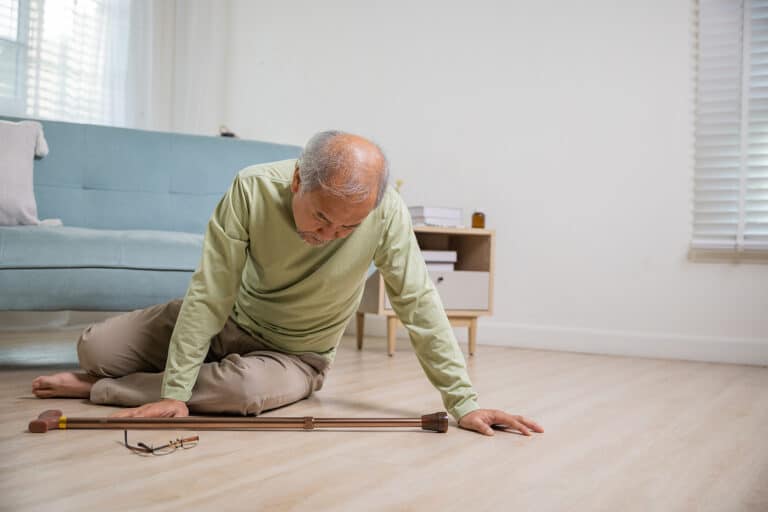Does your aging loved one suffer from occasional vertigo? While vertigo is not a life-threatening condition, one of the most concerning complications that can occur from having vertigo is falling. As a senior adult, your loved one needs to keep the risk of falling at a minimum due to the high risk of serious injury like a concussion or broken bones that can occur with a fall.
Vertigo symptoms range, but the most common symptom of vertigo is a spinning room. While the room isn’t really spinning, the brain receives information that the room is spinning and your loved one will see it spin around him, causing an acute case of dizziness or vertigo. It can be more than enough to cause someone to stumble and fall, especially if there is nothing nearby to hold onto to stabilize oneself. While vertigo can often pass quickly, it only takes a few seconds to cause your loved one to stumble or fall. On the other hand, vertigo can sometimes last for hours, making any type of movement during that time treacherous.
If your loved one has had a full exam regarding his vertigo, he may need to learn some ways to manage it at home if he can’t find any long-term solution. Vertigo doesn’t have a cure, but your loved one can learn to manage the symptoms. Companion care at home can provide support to your loved one by assisting during episodes and helping to maintain a safe environment. Here are some helpful tips to help prevent vertigo attacks and/or lessen their symptoms:
-
If vertigo attacks are common, your loved one might consider using a cane to lean on in case an attack occurs while he’s out and about. A cane can make sure he immediately has something to hold onto in case there is nothing else around.
-
Your loved one might also consider having someone like a companion care at home provider in the house with him to help him navigate stairs and change positions. A companion care at home provider can also be there in case an attack occurs and your loved one needs immediate help.
-
When changing positions, such as lying down in bed, getting out of bed, or getting in or out of a chair, your loved one should take his time. Keeping movement slow and steady will help reduce the risk of vertigo setting in or at least making it less severe. Help from a companion care at home provider as he gets on and off of the couch can help him ease into a new position.
-
At night, your aging loved one might find relief from sleeping with his head elevated on several pillows.
-
When vertigo does hit, your loved one should either sit right away or when needed, find a quiet, dark room to rest in.
-
When needing to pick up something that is on the floor, your loved one needs to avoid bending over to pick it up (no matter how small it is). Instead, he should practice squatting to pick up items to avoid a sudden rush of vertigo.
-
If vertigo interferes with the quality of life for your loved one, work with his primary physician to develop a plan to combat it.
If you or an aging loved-one is considering Companion Care at Home in Islip, NY please contact the caring staff at Help at Home today! Call (631) 859-3435
Help at Home is a top provider of home care services in Islip, Babylon, Huntington, Smithtown, Brookhaven, Hempstead & Oyster Bay, and surrounding areas on Long Island & NYC. We serve Brooklyn, Queens, Nassau, and Suffolk Counties.
Whether you or a loved one is recuperating from an illness or a senior requiring care, we can help. Help at Home is committed to providing quality home care at affordable rates. Helping a patient remain in the comfort and security of their home is our goal. We are the best alternative to nursing homes and assisted living facilities. Help at Home caregivers
- The Benefits Seniors Get From Living at Home - April 4, 2025
- Alzheimers Home Care for Seniors Can Help Your Senior Parent Be Safe at Home - March 19, 2025
- Getting Help for Your Loved One With Edema - March 5, 2025


